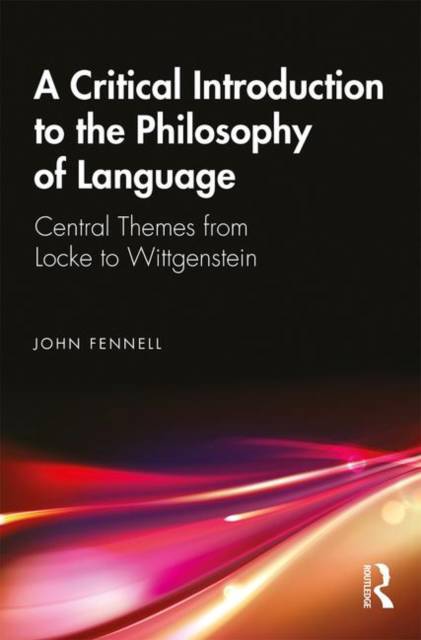
- Retrait gratuit dans votre magasin Club
- 7.000.000 titres dans notre catalogue
- Payer en toute sécurité
- Toujours un magasin près de chez vous
- Retrait gratuit dans votre magasin Club
- 7.000.000 titres dans notre catalogue
- Payer en toute sécurité
- Toujours un magasin près de chez vous
A Critical Introduction to the Philosophy of Language
Central Themes from Locke to Wittgenstein
John FennellDescription
A Critical Introduction to Philosophy of Language is a historically oriented introduction to the central themes in philosophy of language. Its narrative arc covers Locke's 'idea' theory, Mill's empiricist account of math and logic, Frege and Russell's development of modern logic and its subsequent deployment in their pioneering program of 'logical analysis', Ayer and Carnap's logical positivism, Quine's critique of logical positivism and elaboration of a naturalist-behaviorist approach to meaning, and later-Wittgenstein's 'ordinary language philosophy'-inspired rejection of the project of logical analysis. Thus, it historically situates the two central programs in early twentieth-century English-speaking philosophy -- logical analysis and logical positivism -- and discusses the central critiques they face later in the century in the works of Quine and the later-Wittgenstein. Unlike other secondary studies in philosophy of language, A Critical Introduction to Philosophy of Language is not just a 'greatest hits album', i.e., a discontinuous compilation in which classics in the field are presented together with their standard criticisms one after the other. Instead, Fennell develops a particular, historical-thematic narrative in which the figures and ideas he treats are introduced in highly intentional ways. And by cross-referencing them throughout his discussions, he highlights the contributions they make to the narrative they comprise.
Spécifications
Parties prenantes
- Auteur(s) :
- Editeur:
Contenu
- Nombre de pages :
- 306
- Langue:
- Anglais
Caractéristiques
- EAN:
- 9781138339729
- Date de parution :
- 14-02-19
- Format:
- Livre broché
- Format numérique:
- Trade paperback (VS)
- Dimensions :
- 152 mm x 229 mm
- Poids :
- 421 g







